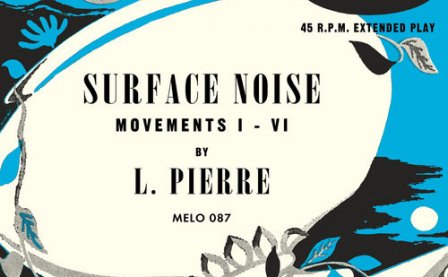This is the third solo disc from Arab Strap’s Aidan Moffatt. On his previous releases, he trafficked in lots of drum programming and scattered electronic effects, but Dip has him trying his hand, with mixed success, at gently unfurling sound collages.
“Gullsong” treads water, rather elegantly, for six minutes. Peals of seagull squawks punctuate a placid wash of horns, organ, and oohs. It’s pretty but a touch complacent. (I’ve found it’s best to play it very loud: those gulls become terrifying, and the samples of ocean waves gain some grandeur.) The beachfront recordings hem the first track to “Weir’s Way,” an unflaggingly tasteful 12-minute suite that includes pleasant contributions from banjo, tambourine, finger cymbals, and those meandering horns, all cushioned by a soft bed of strings and some politely hissing hi-hats.
The mood turns more somber with “Gust” and “Ache,” whose string arrangements, morose piano lines, and heavily delayed vocals render Moffatt’s template less charming and more haunting (a good move at this point in the album). The gloomy midsection gives way to “Hike,” Dip’s most conceptually interesting piece. The song incorporates a brisk, breakish drum pattern and a Coplandesque string and flute arrangement that loops over itself until the crunching of boots and a flowing stream articulate the titular theme (a breakbeat DJ thinks to himself, “To turn, turn, shall be our delight...”).
Album closer “Drift” does just that, concluding the disc with the quiet crush of waves on a beach, giving the album as a whole the feeling of a self-contained loop. The ebb-and-flow conceit is a bit easy, and it’s possible that Moffatt is aware: perhaps the title is his hint that this album is an experiment for him, a cursory foray rather than an all-out plunge into ambient music.
I have no opposition to music with a narrow structural focus. But for such music to really engage me, the artist has to explore the reach and grasp of its central idea more bravely than Moffatt does here. The collages he’s created are undoubtedly lovely, but as they stand, the songs sound more like attractive opportunities for great musicality than confident realizations of it. Devotees of the Tim Hecker brand of ambient/drone will likely find this one somewhat passive and cloying, but fans of Moffatt’s prior work should be pleased by this latest effort.
More about: L. Pierre



